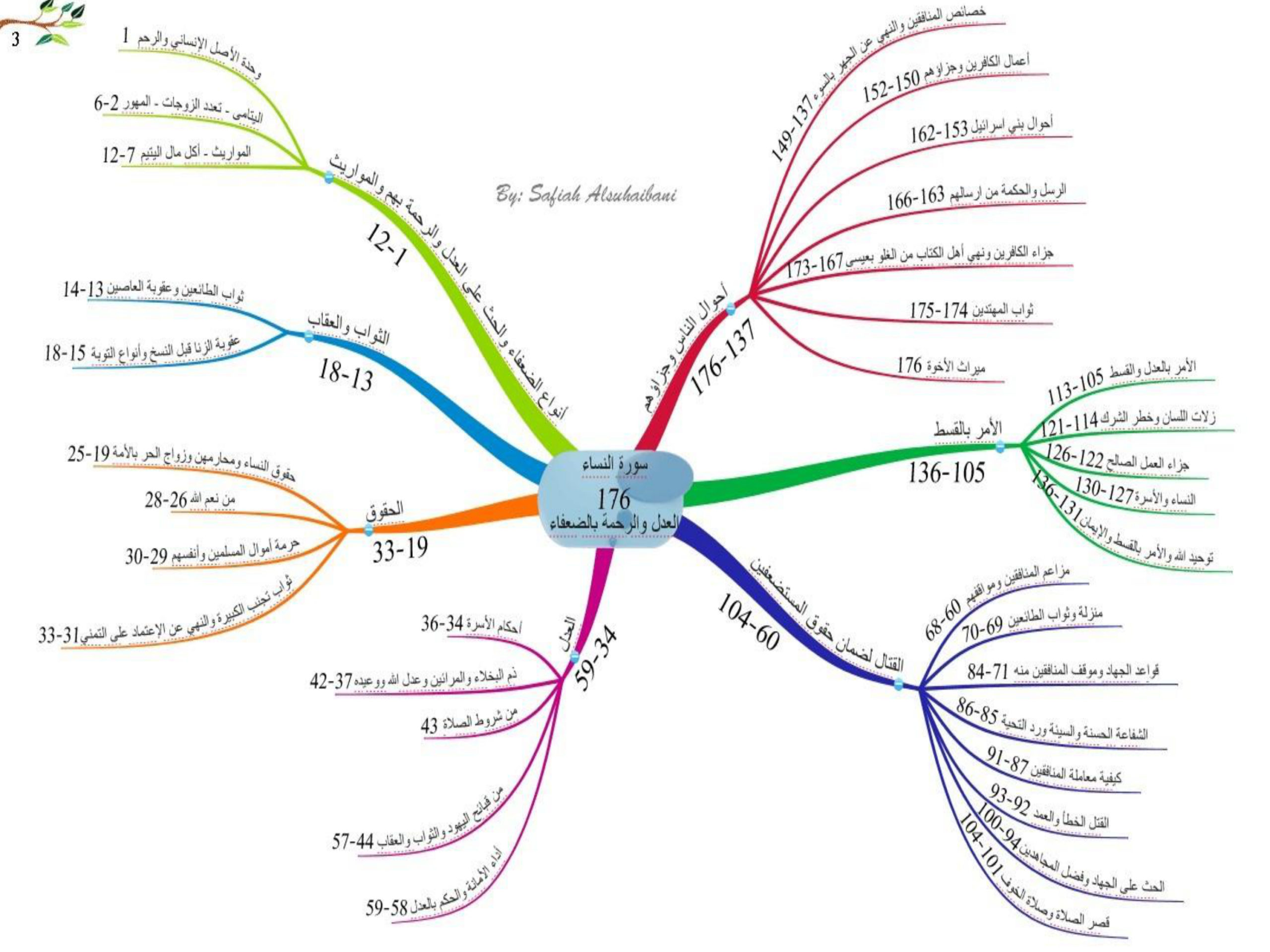In sha Allah, continuing with our featured Qu’ran Mind Maps from “Al-Khara’it Adh-Dhihniyah Lisuwar Al-Qur’an Al-Kareem” (see picture above), Surat An-Nisa.
See below translation, a main theme is identified for the Surah, then it is broken down into sub-themes associated to groups of Ayat.
Main Theme: Justice and mercy towards the weak
- 1-12: Types of weak people, being just and showing mercy to them, and inheritance
- 1: Humankind’s one origin, and ties of kinship
- 2-6: Orphans, polygyny and dowry
- 7-12: Inheritance, devouring the property of the orphans
- 13-18: Reward and punishment
- 13-14: The reward of the obedient and the punishment of the sinners
- 15-18: Abrogated punishment for fornication, and the types of repentance
- 19-33: Rights
- 19-25: Rights of the woman and her Maharim, and marriage between the free man and the slave woman
- 26-28: Some of Allah’s blessings
- 29-30: Sanctity of the Muslim’s wealth and life
- 31-33: Reward for avoiding major sins, and the prohibition of having false hopes
- 34-59: Justice
- 34-36: Rulings on family
- 37-42: Dispraise of the stingy and the ostentatious. Allah’s justice and threat of punishment
- 43: Some conditions of prayer (Salat)
- 44-57: Some repulsive traits of the Jews, reward and punishment
- 58-59: Fulfilling one’s trust, judging with equity
- 60-104: Fighting for the rights of the weak and oppressed
- 60-68: Allegations and position of the hypocrites
- 69-70: Status and reward of the obedient
- 71-84: Rules of Jihad and position of the hypocrites towards it
- 85-86: Good and bad intercession, and returning greetings
- 87-91: How to interact with the hypocrites
- 92-93: Intentional and unintentional killing
- 94-100: Enticement to Jihad and virtues of the Mujahideen
- 101-104: Shortening prayer and the Prayer of Fear
- 105-136: The order to be equitable
- 105-113: Ordainment of justice and equity
- 114-121: Woes of the tongue and the danger of Shirk
- 122-126: The reward for good deeds
- 127-130: Women and family
- 131-136: Oneness of Allah and the prescription of equity and faith
- 137-176: Conditions of the people and their retribution
- 137-149: Attributes of the hypocrites and the public utterance of hurtful speech
- 150-152: Deeds of the disbelievers and their retribution
- 153-162: Condition of the Children of Israel
- 163-166: The Messengers and the wisdom behind their being sent
- 167-173: Punishment of the disbelievers, and Christians going to extremes about ‘Eesa (AS)
- 174-175: Reward of the well-guided
- 176: Inheritance between siblings
& Allah knows best.




